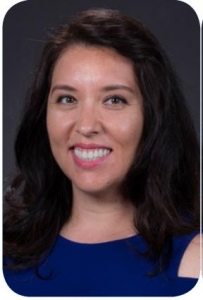According to the Association of American Medical College’s 2020 Medical School Graduation Questionnaire, 7.3% of graduating medical students had dependents[1], up from 3.1% in 2016 [2]. There are more people entering medical school as parents or becoming parents during the course of their studies every year and it is estimated that approximately 2% of these parents are female medical students, more colloquially known as “med school moms.” Over the last few years, increasing numbers of female medical students are having children while enrolled in medical school, which makes sense considering that post-secondary training most often occurs during a woman’s prime reproductive years. When I started my first year of medical school in 2018, there were two med school moms in my cohort of 81 students, including myself. To date, there are five of us from that original cohort which works out to about 6%, significantly higher than the approximated national average. With female medical school enrollment at an all-time high, at 50.5% [3], it wouldn’t be unreasonable to anticipate that the number of med school moms will continue to increase. There is little in the literature about the holistic challenges mothers in medical training face and how to handle them [4], though you can easily find plenty of op-eds with anecdotal positive or negative first-hand experiences.
No one can argue that medical school education is a difficult undertaking, particularly during a generation where average test scores continue to climb, the competition among competitive specialties continues to increase, and residency positions struggle to keep pace with increased applicants in the United States [5]. This is a stressor for every medical student regardless of age, gender, marital status, or GxPx. One of the biggest challenges I have personally experienced and have similarly heard from other med school moms is “mom guilt.” Mothers in medical training, as well as working mothers in other fields, overwhelmingly experience FOMO (Fear Of Missing Out) when it comes to their children’s lives. We were hardworking, brilliant, Type A personalities who often strived for perfection before starting a family, and becoming a mother can easily magnify those tendencies. I myself have been guilty of trying to make up for any time missed with my daughter due to school obligations by scheduling meaningful activities for us to do together during any downtime I had, which is a great strategy if your goal is to achieve burnout in record time. But FOMO isn’t limited to current mothers; aspiring mothers are afflicted by anticipated mom guilt, as evidenced by a quick Google search. “Can I be a mom in med school?” or “Can you be a good mom and a doctor?” are just some of the questions posed by aspiring female physicians, and the answers they find are not always encouraging. The answer, by the way, is YES. If anything, it’s much easier to manage medical training and motherhood now than it was for the trailblazing women who came before us.
Many medical schools are recognizing the value that a med school mom can add to a class and have reorganized their physical spaces and policies to accommodate our growing number. Our very own University of Arizona College of Medicine – Phoenix, has an established lactation room, encourages students to pump during lectures or at clinical sites, provides a subsidized child care stipend, offers free on-site counseling services in addition to flexible 3rd and 4th year scheduling so a pregnant student can be reassured that her training can continue uninterrupted if she chooses to forego a leave of absence. The Alpert Medical School of Brown University offers similar support [6] as do a handful of other allopathic medical schools in the country. If I were to offer advice to prospective applicants it would be to start by researching training programs with similar family-centric policies. Naturally, it helps tremendously to have a supportive partner or family in the area who can assist with the day-to-day tasks of life such as cooking, cleaning, pickup/dropoff, homework, etc., but not every woman has that luxury so a supportive medical school environment is all the more important. Some of the greatest advice I ever received was to treat my pre-clerkship education like a job and I chose a typical work schedule i.e. 9am-6pm and studied in the school library when I wasn’t attending class. I followed a similar model when I was studying for USMLE Step 1 and Step 2 CK. When I came home, I was present with my family and done with academic obligations for the day. Then 3rd year clinical rotations started and that wasn’t feasible anymore because I was working someone else’s schedule! I bounce from one specialty to another every few weeks and they vary in terms of days off and scheduling. I always tried to study during any downtime on my rigorous rotations, knowing I would only get one day off per week and I wanted to spend that day doing non-school-related activities. As a 4th year, I have more control over my schedule aside from a handful of required rotations.
Even with all of the proper support in place, medical school is hard. But if there’s anything I have learned over the last 4-5 years, it’s that being a mom doesn’t mean you have to be done accomplishing your professional goals. There’s an army of women who came before you, and an army coming up behind you.
References
- Association of American Medical Colleges Medical School Graduation Questionnaire 2020 All Schools Summary Report. https://www.aamc.org/data-reports/students-residents/report/graduation-questionnaire-gq. Accessed September 7, 2021.
- Association of American Medical CollegesMatriculating Student Questionnaire: 2016 All Schools Summary Report. https://www.aamc.org/data-reports/students-residents/report/matriculating-student-questionnaire-msq. Accessed September 7, 2021.
- Boyle P. More women than men are enrolled in medical school. AAMC. https://www.aamc.org/news-insights/more-women-men-are-enrolled-medical-school. Published December 9, 2019. Accessed September 8, 2021.
- Durfey, Shayla N.M. MD, ScM1; White, Jordan MD, MPH2; Adashi, Eli Y. MD, MS3 Pregnancy and Parenting in Medical School: Highlighting the Need for Data and Support, Academic Medicine: September 2021 – Volume 96 – Issue 9 – p 1259-1262 doi: 10.1097/ACM.0000000000003988
- Hayek S, Lane S, Fluck M, Hunsinger M, Blansfield J, Shabahang M. Ten Year Projections for US Residency Positions: Will There be Enough Positions to Accommodate the Growing Number of U.S. Medical School Graduates? J Surg Educ. 2018 May-Jun;75(3):546-551. doi: 10.1016/j.jsurg.2017.08.021. Epub 2017 Sep 14. Erratum in: J Surg Educ. 2019 Jul – Aug;76(4):1161. PMID: 28919221.
- Taylor J, Macnamara M, Groskin A, Petras L. Medical student-mothers. R I Med J (2013). 2013 Mar 1;96(3):42-5. PMID: 23641439.
Kristina Yancey is a member of The University of Arizona College of Medicine – Phoenix, Class of 2022. She graduated from The City University of New York-Staten Island in 2008 with a dual Bachelor of Science degree in Biochemistry & Chemistry, earned a master’s degree in Educational Leadership from Arizona State University in 2017 and completed a Graduate Certificate in Health Sciences through the Pathway Scholars Program at The University of Arizona College of Medicine – Phoenix in 2018. She enjoys research, community activism, singing Karaoke, dancing, and cracking up at her own jokes. But most of all, she enjoys spending quality time with her husband and daughter.
Email: kyancey@email.arizona.edu


